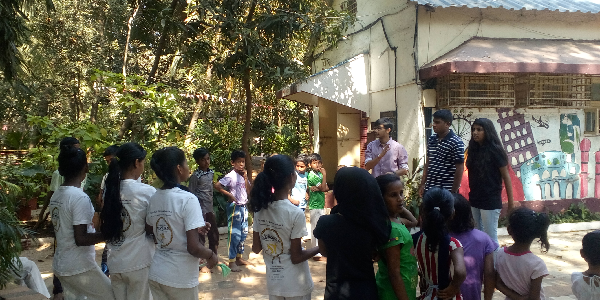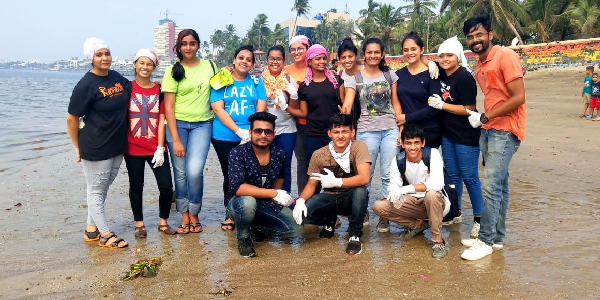Main Content
Community Activities


Our Objectives:
To instill within the students a spirit of service to community through practice
To enhance a sense of appreciation for community services among the students through impressing its significance
To increase awareness and sensitize the students to social issues
For centers of Higher education especially in India, social engagement does not form a part of the traditional instructional system. Such orientation of students to community service however should be looked upon as an essential component of educational organizations as special focus is on the youth community. Apart from increasing academic output, social involvement leads to psychological and intellectual growth, reduces feelings of disconnect from society among adolescents and develops a socially responsible perspective.
In order to maximize the involvement of students in community related exercises the first-year students are facilitated to take up service slots with NGOs and other social bodies. Provision is made during the planning of the annual academic schedule to incorporate social weekly service hours of the students. The School establishes liaisons and tie-ups with centers of community service and development to ensure and streamline engagement of students in understanding and addressing socially relevant issues.
Evidence of Success
The initiation of this practice has in the first place led to associations of the School with social bodies active in the immediate locality. There has been a progressive increase in the level of understanding related to incorporating community engagement into the learning and evaluation system. Increased sense of social responsibility, awareness of social issues, and comprehension of the functioning of social systems, among the students are some of the positive outcomes of the practice. The practice has led to the conduction of activities wherein students could actually engage in community work. Students of B. Tech Biotechnology visited the NGO named ‘The Vatsalya Foundation’ and helped put together and organize Sports day for the children. The students and accompanying faculty also held a small workshop on general hygiene and communication skills. The postgraduate students of the School participated in ‘Beach Please’, a student-led inter-collegiate event ‘Clean Coast Cup 2018’, on 7th October, 2018 at Dadar beach.
Post graduate students of Biotechnology and Genetic engineering undertook an Agriculture Based Societal Extension Project under the Keshav Srushti Gram Vikas Yojana. The students identified a village in Palghar district named ‘Wada’ and visited the locals in order to understand the problems faced by the farmers. A two-pronged approach was planned for the betterment of the villagers. Cultivation of different crops in place of the usual paddy yields that farmers harvested was suggested. A biochemical and microbiological analysis of the soil to ascertain the success of alternative crop was also envisioned. In a different approach to provide other employment opportunities, the student and faculty team initiated a small scale baked-chips factory in the village. Through production of healthy and tasty snack options from rice and ragi this initiative opened opportunities for villagers to run an independent industry that would sustain them through times of agricultural setbacks.
In the years 2019-2020 and 2020-2021 which are considered as the years of the ill-famed Covid pandemic the students of the School actively participated in several community service programs as a part of the Rotary Club-DPSBB-Satellite City. This included the Assam food relief campaign, the fundraiser Charity stream, Pass a plant, Raktadaan, Voice your Rights, City Cleanup initiative, Zero Hunger Campaign and Atma Nirbharta
Implementation of the practice required thorough and full proof planning of the annual academic schedule to incorporate a specific number of hours of service in the weekly timetable of the students. Monitoring and recording student engagement into the program was yet another challenge. Developing criteria to assess the fulfillment of set requisites was also challenging. Human resources in the form of dedicated and motivated faculty and students with a willingness to undertake the cause were the most important resources. Financial resources for other arrangements and expenses was the second resource required.
